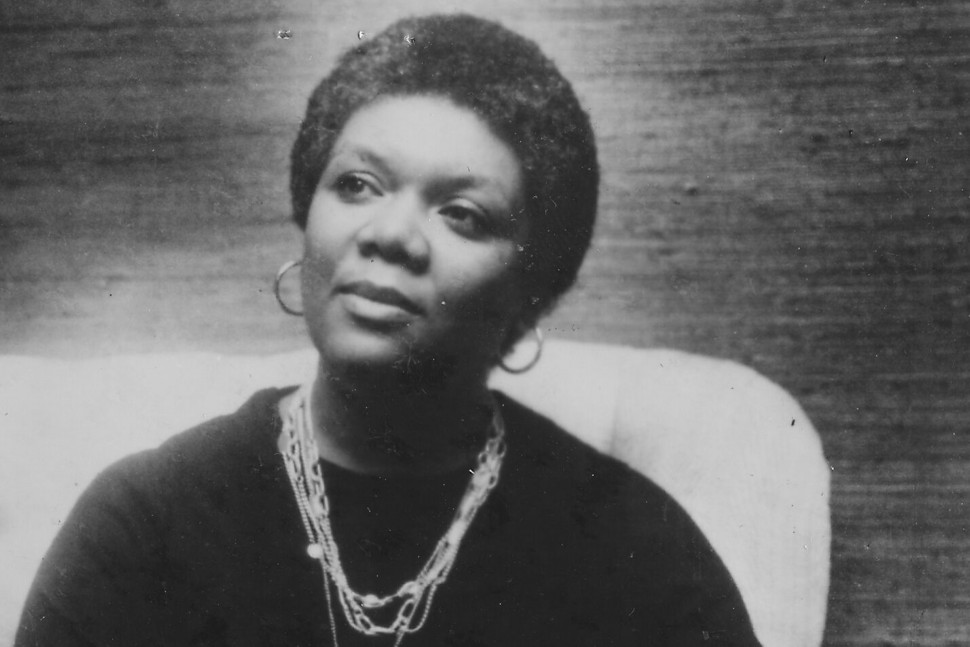This semester, the Kratz Center for Creative Writing is sponsoring a series of events entitled “Poetry as Community.” In conjunction with this theme, the Q has asked student poets to write about poets whose work they appreciate, to send in along with their own poems.
Here is Goucher poet Donché Golder, ’18, on poets who he considers to be great:
Lady Ise 877-?940
Lady Ise is a Japanese poet who wrote her work and the ‘Waka’ form. The term ‘Waka’ refers to poetry written in a 5-7-5-7-7 metre, (5-7-5 look familiar?) although it was once an all encompassing word form poetry in Japan. Lady Ise was the premiere female poet in Kokinwakashū, the first anthology of waka commissioned by Emperor Daigo. She is also, alongside Ono no Komachi, one of the premiere female poets in the Japanese early classical canon. Her works on the season are very beautiful and when translated are among some of my favorites.
*Note: Waka when translated into English or other languages may not always retain their metre.
ISE SHŪ 37 (*Ise Shū is the poetic memoirs of Lady Ise)
yo ni sakanu Never blooming in this world,
mono ni ariseba Were it such a thing,
sakurabana A cherry blossom;
Fito ni amaneku To all and sundry
tugezaramasi wo It would be better not, to announce it so!
KOKINWAKASHŪ XVIII: 1000 (located in the 18th book of the kokinwahashū, the 1,000th waka chronologically.)
yamagaFa no A mountain brook
oto ni nomi kiku Babbling is all I hear
momosiki wo Over the many-stoned palace
mi wo Faya nagara Swift as the current would I return to the days
miru yosi mo gana I saw it-how I wish it could be so!
Fujiwara No Teika 1162-1241
Like Lady Ise above, Fujiwara No Teika (Teika), was a renowned Japanese poet who wrote in the waka form. His works were inspired by the occurrences in his life, and show fluctuations due to his status at court and his physical health. Nonetheless he is still an inspiration to me as a poet. His works are recorded in the Senzaishū and the Shinkokinshū.
SENZAISHŪ V: 355
sigure yuku Touched by drizzling rain,
yomo no kozuwe no All around, the treetops
iro yori mo With their colours say
aki Fa yuFube no Autumn in evening is
kaFaru narikeri A time of change, indeed.
SHINKOKINSHŪ VIII: 788
tamayura no Fleeting, indeed, are
tsuyu mo namida mo Dew and tear drops, both
todomarazu Unceasing;
nakibito koru She loved
yado no aki kaze This house, where Autumn winds blow now.
Lucille Clifton 1936-2010
Lucille Clifton was an African American Poet born in New York City. Since it isn’t my job to give you a full chronicle of her life, I’ll keep it brief. Clifton’s work focused on the African American experience, both as an African American woman and as a member of an African American family. She was a Pulitzer Prize finalist for her works Good Woman: Poems and a Memoir, 1969-1980, and Next: New Poems, which were both published in 1987. Clifton was also Poet Laureate of Baltimore City (My hometown). All in all, Clifton’s work speaks to me as an African American and makes me aspire to write as well as she did.
homage to my hips
these hips are big hips
they need space to
move around in.
they don’t fit into little
petty places. these hips
are free hips.
they don’t like to be held back.
these hips have never been enslaved,
they go where they want to go
they do what they want to do.
these hips are mighty hips.
these hips are magic hips.
i have known them
to put a spell on a man and
spin him like a top!
my dream about being white
hey music and
me
only white,
hair a flutter of
fall leaves
circling my perfect
line of a nose,
no lips,
no behind, hey
white me
and i’m wearing
white history
but there’s no future
in those clothes
so i take them off and
wake up
dancing.
Other poets Donché recommends:
Langston Hughes. Allen Ginsberg. William Blake. Toni Morison. Maya Angelou. Claudia Rankine. Nikki Giovanni. Michael Ondaatje
To read some of Donché’s poems, click here.
Featured Image: Lucille Clifton. Credit: The Poetry Foundation

